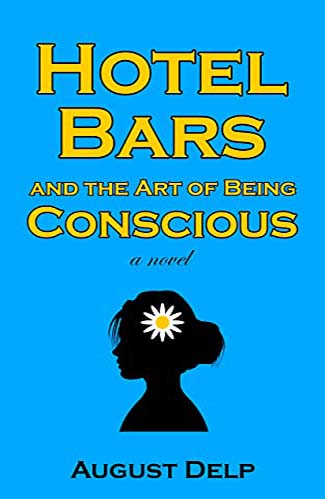
Literature and Life’s Third Stage
Explorations of life’s meaning after the kids move out
Hotel Bars and a number of other stimuli triggered my consciousness to consider how life’s three stages intersect with literature. According to main character Daisy, the three stages of life should be titled:
“Childhood, sexual, and the difficult to name one, postsexual.”
By postsexual, Daisy means no longer reproducing not a life of celibacy, so don’t panic.
As you’ve probably noticed, humans are obsessed by life’s sexual stage during which the focus is finding a partner in order to procreate then rearing and supporting children. Naturally many readers new to this stage flock to steamy “emerging adult” titles, erotica, and romance.
Eighty-five percent of content focuses on characters in the thirteen to thirty range.
Those in the child-rearing portion of this stage might crave the romance or thrills they’ve missed whilst changing diapers or being passed over for promotion, and reach for escapist titles; thrillers, fantasy, mysteries, and romance, because; let’s face it, adult life is difficult.
Second-stage literature encompasses the bulk of titles because second-stagers are obsessed with sex and spend money. And many still seek outwardly to define themselves, features that draw market savvy authors like flies to honey. However the “postsexual” generation also reads. Sure, some of them are satisfied by the same titles as younger readers. But some of the older set have lost interest in certain aspects of life’s earlier stages. Some have reached the conclusion that romance and heroics don’t hold life’s answers.
Right after finishing Hotel Bars, I came across Midlife Witch Unexpected in a independent authors group promotion. Midlife Witch exemplifies “paranormal women’s fiction,” a literary genre which places a forty-plus heroine in a plot combining elements of urban fantasy, paranormal romance, and/or mystery. Intrigued, I did a bit of research into the genre.

Detail from the cover of “The Crone Age”
Magic, romance, and starting over
Doesn’t she look hot for a menopausal witch? Notice the silhouette twenty-years shy of forty and the impressive bust to waist ratio, making her less a crone than a WILF.
Because, nobody really wants to be middle aged, do they? Hence, a typical paranormal women’s fiction protagonist builds for herself a life in which she is again hot: a child-free woman over forty divorces or is widowed, moves to a new location, discovers special powers, saves the town or solves the case, and is wooed by a hunky dude. At a glance, the underlying messages seem to be resilience, coping with change, and remaining powerful, attractive, and visible as an older woman.
But I’m reminded of a side-of-the road billboard featuring a group of very fit almost naked older people captioned “Can you see us now?” The billboard was part of a campaign raising awareness of older adults. As an introvert, my response to the billboard was “why would you want to be seen?” For some, the relative anonymity comes as a relief.
Maybe part of the issue is that stage three is an extraneous blip of existence, featuring people past prime reproductive age, with minimal evolutionary purpose. Maybe there is no meaning for this group.
But the majority of late middle aged people in my orbit are happily single or solidly married and content to be left to their gardening, bowls club, bicycling, pottery studio, marathons, and game streaming, etc. Most are busy; still working and still housing young adult children, and some travel.
Are any forty-somethings and fifty-plusses reading stories about the meaning of life or about contented older people, whether they’re meditating, contributing to the community, writing novels, crafting, or caring for grandchildren.
These small activities “reverberate until the end of time, in some small way.” And may be of literary interest. Just consider Miss Marple.
I asked my sci-fi/fantasy group for novels featuring older protagonists who are okay with themselves. Who don’t feel deficient or tossed aside. Who aren’t seeking a love interest, replacement family, replacement career to create meaning for themselves in middle age and beyond. I’ll let you know what I uncover.
